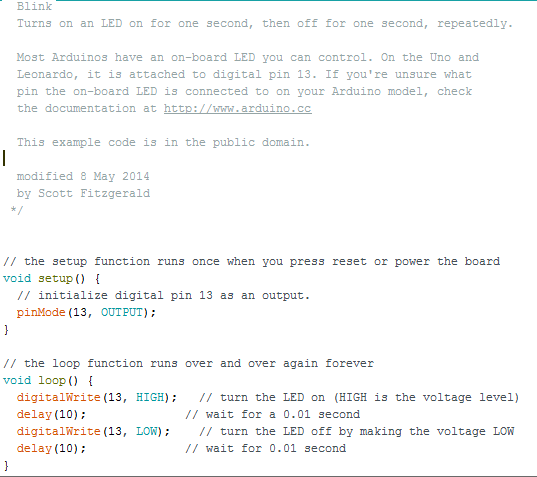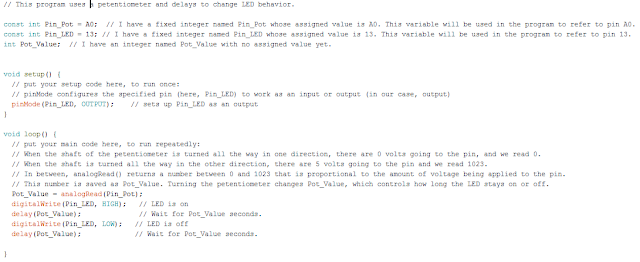Challenge 1: Blink with Delay of 10
Our program
Our Hardware/The Result
The LED flashes every 10 seconds but appears as a continuous light because the human eye cannot perceive flashes that happen that quickly.
Challenge 2: Pattern with 3 LEDs Using Delay() Function
Our Program
Our Hardware
The Result (Turning from 0 V to 5 V)
Challenge 3: Use Potentiometer to Change LED Behavior
Our Program
(You might need to zoom in for this one, this was the largest size possible)
Our Hardware
Our Results (Turning from 0 V to 5 V)
Challenge 4: Pattern with 3 LEDs That Does Not Use Delay() Function
Our Program
Our Hardware
Our Results
Conclusion:
Working with the Arduinos was a lot of fun. I've taken Python before, and I thought the Arduino programming language was pretty easy to catch onto. I've always been confused by how breadboards work, though, so I was happy to get some more practice with them. I think figuring out where the connections should go and why is the most challenging part. I was also confused at first by what the the potentiometer does, but I found out online that turning it controls the voltage going to the pin. I enjoyed changing the programs and observing the effect in order to understand what each line of code does. I also liked creating the lighting patterns for the LEDs.









No comments:
Post a Comment